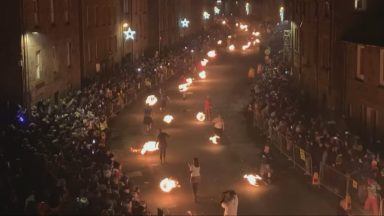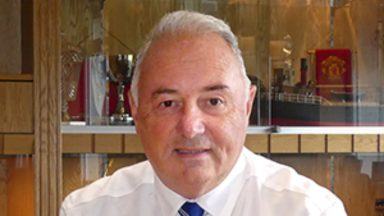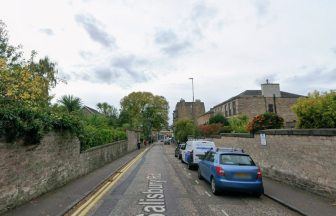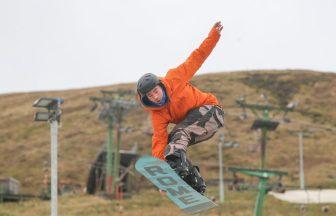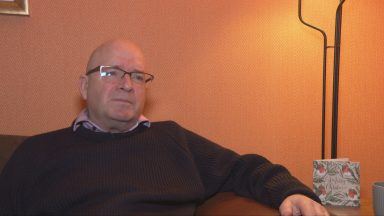A soldier has become friends with a man he blinded during the Troubles in Northern Ireland.
Charles Innes, from Whitsome in the Borders, was a captain in the Royal Artillery when he fired a rubber bullet that blinded ten-year-old Richard Moore in 1972.
Mr Moore went on to form the charity Children In Crossfire, which has raised millions to help youngsters worldwide.
The men are now close friends after meeting for the first time for a documentary in 2006 – a friendship hailed by the Dalai Lama, whom they met in 2010.
Innes, who was 30 at the time of the shooting, apologised earlier this year and says the bond between the two is so great he wants the charity chief to speak at his funeral.
He said: “1972 was the most unpleasant year of the Troubles, the violence was unbelievable, almost on a daily basis a soldier, a police officer or a prison officer was killed or seriously injured.
“The intention of firing the rubber bullet was to get youths who were in the process of throwing stones and generally causing mayhem around a post, which was an RUC station.

“We were there to protect it, and I fired a rubber bullet, one of thousands fired that year, the vast majority of which gave little more than a bruise, and unfortunately the one I fired horrifically nearly killed poor Richard.
“Years later, when we met, we immediately got on exceptionally well, we had a bond and have formed a great friendship.
“At some stage I certainly said to Richard ‘I am awfully sorry this happened’. As I say to other people, the intention of the rubber bullet was no more than to get the people who were causing the problem to go away.
“That was the sole intention; the idea I had intended to damn nearly kill a ten-year-old child was never there.
“I had children of a similar age myself, and the last thing in the world I wanted to do was damage a child. But the only means we had of trying to disperse people being violent was a rubber bullet gun.
“The great regret remained with me for a long time.”
The two men have given talks together, including at a community centre which now stands where the rubber bullet was fired.
Mr Innes added: “Richard and I come from totally different backgrounds, our whole lives have been totally different, but from the moment I met him I felt I had known him all my life.
“We have become really great friends. Somebody said to me to what level would I put that. I put it as succinctly as I can – when I die, there are two people who are going to speak at my funeral, one of them is Richard.”
Mr Moore says he was moved by the apology.
The now 59-year-old said: “Charles was of the opinion that, when you say sorry, it means that you didn’t mean to fire the bullet. He’d say ‘I meant to fire the bullet, but I never meant to cause the damage’.
“He always said if he’d known what was going to happen to me, he wouldn’t have fired it.
“To me that is semantics, but the more I talked with Charles and the more we got to know each other, I always felt that he was sorry. He just couldn’t bring himself to say it.
“And then, eventually, many years after we first met, we were talking about the ‘sorry’ word one night and he said to me ‘Richard, I am sorry’.
“When it came, it was really moving. I didn’t need it, I didn’t ask for it, but when it came it was really, really nice. It really was.”
Mr Moore echoed his friend’s thoughts: “As soon as I met him, I liked him, we got on very well and have remained friends.”
The Derry man said he has never dwelt on losing his sight, and went on to form his charity which was recently awarded a £250,000 grant through the Department For International Development’s UK Aid Direct scheme to help provide 100,000 children in the Dodoma region of Tanzania with an education.
And he said his unique experience has helped him inspire people he meets in Africa: “I meet lots of disabled or disadvantaged people who are totally written off, but I hope, when they see the role I have as a person with a disability, they can see that there is a life to be had.
“I go to a lot of places where there’s been conflict and people are suffering and I hope my story helps prove that forgiveness is the best way to move on.”
Follow STV News on WhatsApp
Scan the QR code on your mobile device for all the latest news from around the country








